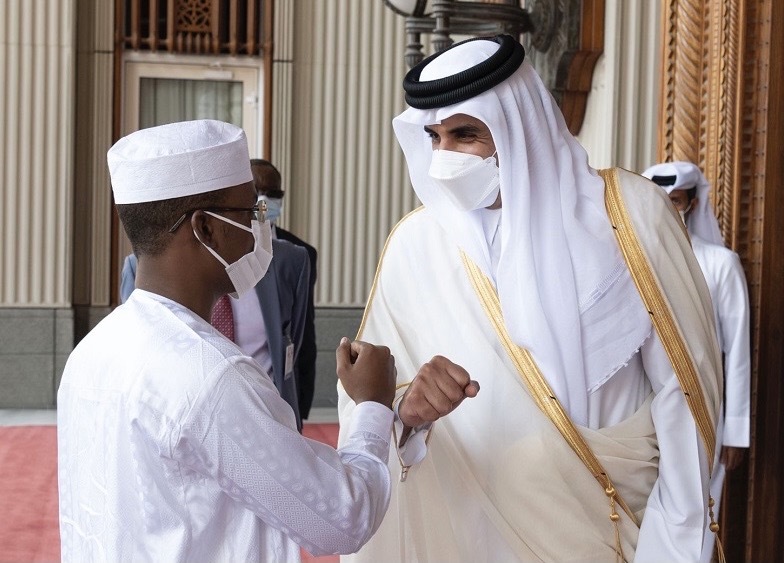Doha-facilitated peace talks between different Chadian parties continue to take place in the Gulf state.
The President of Chad’s Transitional Military Council Mahamat Idriss Deby Itno held a phone call with Qatar’s Amir Sheikh Tamim bin Hamad Al Thani on Friday.
According to the Amiri Diwan, Sheikh Tamim and Deby discussed ways to develop Qatar and Chad’s bilateral ties as well as regional and international developments of common concern.
The conversation comes as Doha-facilitated peace talks between different Chadian parties continue to take place in the Gulf state.
The preparatory talks had started on 13 March with the participation of more than 40 sides, comprising rebel and political groups. Deby said he hoped the talks would reach a political resolution.
The negotiations in Qatar compliment Chad’s national reconciliation talks, scheduled to take place in May.
Deby had assumed power after his father and former President Idriss Deby was killed in the middle of fighting between government and rebels from the Front for Change and Concord in Chad (FACT) on 20 April, 2021.
He then named a 40-member transitional government in May last year, that is scheduled to remain in office until the end of 2022. Deby also formed an interim parliament in September, the National Transitional Council (NTC), comprising of 93 members.
Human Rights Watch (HRW) said that the human rights situation has worsened in the country since the killing of the former ruler, with people in Chad calling for a civilian-led transition.
Rebel forces had launched attacks to topple the former leader since 1990.
The current 38-year-old ruler has been reportedly arresting dissidents and threatening critics in the country. Those claims have been denied by Deby’s ministers.
“Chad’s allies should tell him [Deby] that the military council; should reverse course, respect and protect Chadians’ right to peaceful protest,” said HRW last week.
Talks in Doha
Qatar’s Amir had agreed to host the talks in the Gulf state, after Doha and N’Djamena restored diplomatic ties in 2021. Chad had severed ties with the Qatar during the 2017 Gulf Cooperation Council (GCC) crisis.
Deby said he hoped the talks would pave the way for long-promised free and transparent elections and agreeing on a new constitution.
Weeks into the talks, the Chadian sides unanimously agreed on naming Qatar as the mediator at the negotiations. AFP reported last month that Qatar agreed to act as a mediator.
Speaking to the French news agency last month, Qatar’s special envoy for mediation Dr Mutlaq bin Majed Al Qahtani said that “the Chad peace negotiations are progressing on the right track, despite some challenges.”
AFP also said that there have been demands presented by some conditions presented by some of the parties at the negotiations. The return of seized assets was also mentioned during the talks.
HRW said that no private Chadian media have been allowed to attend and report on the talks in Qatar, however Chad’s Minister of Communications Abderaman Koulamallah denied such exclusions.
“No one has been excluded from the Doha talks, there have been sudden changes in the organisation of this dialogue and that has disturbed our organisation a little,” he said, as quoted by Radio France Internationale (RFI) in March.
Chad was under France’s colonial empire between 1900 and 1960, which followed several conflicts. France has backed the late Chadian leader’s son and sees N’Djamena as a key point in its fight against “jihadist” military operations.







